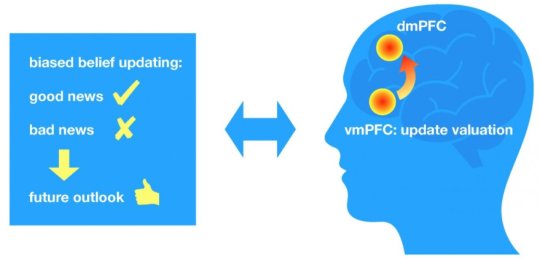MedicalResearch.com Interview with:
Dr. Bojana Kuzmanovic PhD
Max Planck Institute for Metabolism Research
Translational Neurocircuitry Group
Cologne, Germany
MedicalResearch.com: What is the background for this study? What are the main findings?
Response: Do our beliefs depend on what we want to believe? Until now, researchers failed to show how interactions between brain regions mediate the influence of motivation to adopt desirable notions on ongoing reasoning. Our study used optimized design and analyses to rule out alternative explanations and to identify underlying neurocircuitry mechanisms.
MedicalResearch.com: What are the main findings?
Response: First, we demonstrated that people’s belief formation behavior depends on their preferences. When people were asked to reconsider their beliefs about their future outcomes, they tended to rely more strongly on good news and to disregard bad news.
Second, we showed that favorable belief updating activated the brain valuation system known to be responsive to rewards such as food or money (ventromedial prefrontal cortex, vmPFC). That is, the valuation system was activated when participants incorporated good news to improve their risk estimates, and when they disregarded bad news to avoid a worsening of their risk estimates.
And third, the valuation system influenced other brain regions that are involved in deriving conclusions about oneself (dorsomedial prefrontal cortex, dmPFC). Importantly, the more participants were biased in their belief formation behavior, the stronger was the engagement and the influence of the valuation system.
The influence of the valuation system on the reasoning system helps to understand how motivation can affect reasoning. It supports the idea that memories and knowledge we recall to form our beliefs are selected in such a way as to yield the desired conclusions. For example, when we wish to convince ourselves that our risk of having a heart attack is low although federal statistics indicate a higher risk, we might recall our healthy life style but not our family history of heart-related diseases, or neglect the fact that the federal population may have a comparable life style. (more…)

